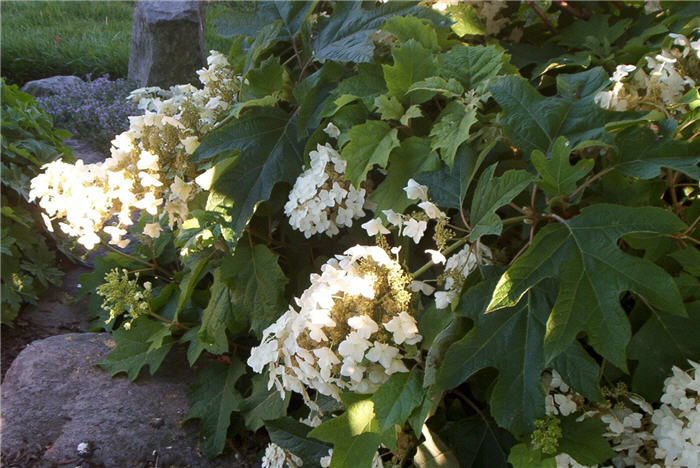| Botanical Name: Hydrangea quercifolia 'Sikes Dwarf' | |
| Common Name: Sikes Dwarf Oakleaf Hydrangea |

-
Anatomy
-
Culture
-
Design
Plant Type
Shrub
Height Range
3-6'
Flower Color
White
Flower Season
Summer
Leaf Color
Dark Green
Bark Color
Brown, Red
Fruit Color
n/a
Fruit Season
n/a
Sun
Half, Shade
Water
Medium, Extra in Summer
Growth Rate
Moderate
Soil Type
Clay, Loam
Soil Condition
Average, Rich, Well-drained, Dry
Soil pH
Acid, Neutral, Basic
Adverse Factors
n/a
Design Styles
English Cottage, Formal, Woodland
Accenting Features
Fall Color, Showy Flowers, Unusual Foliage
Seasonal Interest
Spring, Summer, Fall
Location Uses
Entry, Perennial Border, Shrub Border, Foundation, Patio, Walls / Fences
Special Uses
Cut Flowers, Hedge, Small Spaces
Attracts Wildlife
n/a
Information by: Stephanie Duer
Photographer:
Photographer:
-
Description
-
Notes
Growing only 3 to 4 feet tall and wide, 'Sikes Dwarf' is a great addition to an urban shade garden, as it’s half the size of most quercifolias. Lobed and closely spaced, the handsome broad foliage shows off abundant ivory-colored conical blooms. Foliage turns a deep, rich burgundy in the fall, and the flowers tinge to the softist pink as they age. Its smaller stature also means it fits in the shady perennial border with ease.
Grow in well-drained, loamy soil in part to full, filtered shade. Adaptive to soil type and pH. Water need depends in part on soil and exposure, but given a well-drained loamy soil in filtered light, watering needs are regular, though periodic. Because it blooms on its old wood, the plant should not be pruned until after flowering. Oakleaf hydrangea is very cold hardy and doesn't die-back like H. arborescens 'Annabelle.'